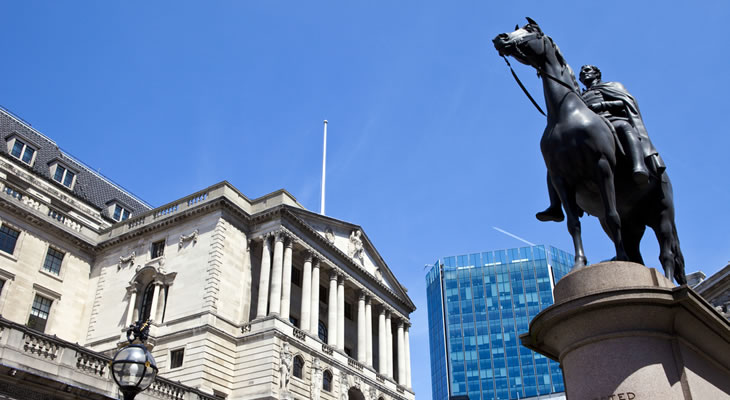Ahead of the Bank of England’s (BoE) March policy meeting the Pound US Dollar exchange rate trended in a narrow range.
The appeal of Sterling was limited thanks to the expectation that policymakers will maintain a less-than-hawkish view on monetary policy.
As strategists at TDS noted:
‘We see risks that the MPC emphasizes this more cautious tone in its economic assessment. Real wages have now started to decline and retail sales growth has pulled back very sharply. With household spending driving 2016 growth, there are significant risks that this was spending pulled forward, which could hurt growth this year.’
If the BoE does lean more towards dovishness in its meeting minutes this could see the Pound to US Dollar exchange rate extend its downtrend further.
Any indication that policymakers are willing to continue looking through the recent increase in the UK consumer price index would also put fresh pressure on Sterling.
However, GBP exchange rates could find a rallying point next week if February’s inflation data shows a further increase on the year.
Regardless of the contents of March’s meeting minutes any signs that inflation is continuing to rise, putting additional pressure on consumer spending, may encourage investor confidence.
On the other hand, if the CPI fails to pick up on the month this could underline the BoE’s reluctance to raise interest rates.
While markets were somewhat disappointed by the latest policy guidance offered by the Federal Reserve the US Dollar soon returned to a strong footing on Thursday morning.
Policymakers maintained their forecasts for a total of three interest rates over the course of 2017, rather than taking the more aggressive view that investors had hoped to see.
Even so, the solid fundamentals of the US economy encouraged the ‘Greenback’ to hold onto its more bullish underlying trend.
The next week could see the GBP USD exchange rate find some support, however, thanks to a more limited raft of US ecostats.
Volatility could still be in store for the US Dollar with the release of the latest housing market data, though.
A stronger housing market would add to the optimistic view of the world’s largest economy, despite the ongoing sense of uncertainty related to the policies of the Republican administration.
February’s durable goods orders figure is expected to disappoint, meanwhile, and could point towards a moderation in US consumer confidence.
If Fed policymakers continue to express a more cautious view with regards to monetary tightening the GBP USD exchange rate is likely to maintain a relatively stronger footing.
However, if Brexit-based worries continue to mount once Theresa May activates Article 50 the Pound is expected to fall further out of favour with markets.


Comments are closed.